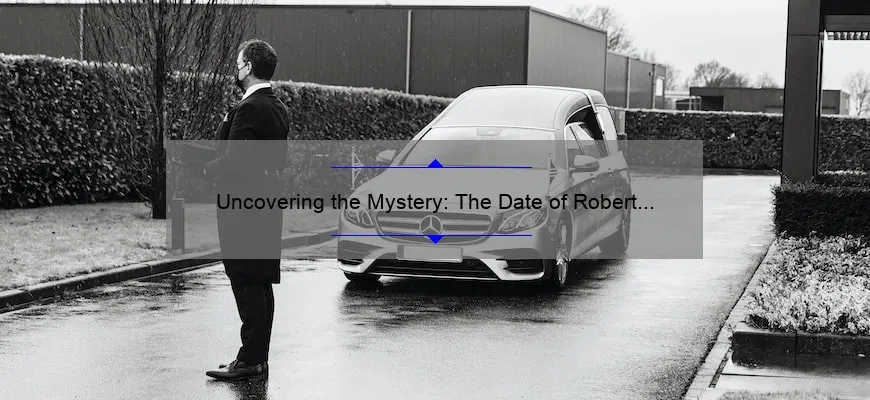Short answer when did Robert Hooke die:
Robert Hooke died on March 3, 1703 in London at the age of 67. He was a natural philosopher, architect and polymath who made significant contributions to many fields including physics, astronomy, biology and architecture.
How and When Did Robert Hooke Pass Away?
Robert Hooke, one of the most notable scientists in history, passed away on March 3rd, 1703. Although his contribution to science is undeniable and noteworthy, many people today are not familiar with the exact circumstances surrounding his death.
To begin with, it’s essential to understand who Robert Hooke was and what he achieved during his lifetime. Born in Freshwater, England in 1635, Hooke was an extremely talented polymath who made significant contributions to various fields of study, including physics, astronomy, architecture and microscopy. He is best known for developing “Hooke’s Law,” which describes the relationship between force and displacement when a spring is stretched or compressed.
Despite his achievements and reputation as a brilliant scientist during his time (he was even considered by some as the ‘Leonardo Da Vinci’ of his era), Robert Hooke experienced several setbacks throughout his life that affected him both personally and professionally.
Towards the end of his career, Hooke became embroiled in a vicious dispute with Sir Isaac Newton over priority claims regarding certain scientific discoveries such as gravity. This feud caused him much anguish towards dying days but didn’t cause the demise we shall discuss further below.
In addition to this conflict with Newton boiling under apparent convivial appearances with colleagues at Royal Society gatherings despite disagreeing when taking positions on either side; speculation arose hints being thin associates proposed different theories concerning Hookes fate ranging from sudden death due natural causes pneumonia stopping breathing so forth while others linked conspiracy pointing evidence connection mercury poisoning though there’s no concrete proof supporting any these views remains mysterious until now
Ultimately though nobody knows for sure how exactly did Robert Hooke pass away since there weren’t many records kept back then? Some say that he suffered from respiratory problems for quite some time before finally succumbing to them on that fateful day in early March-03 – year unknown!
Regardless of how he died precisely half-four-a-century ago yet discoveries he made still play a vital role in modern-day science, notably through the advancement of microscopy and cell theory. In conclusion, one can say that Hooke’s contributions to science were indeed elusive!
The Step-by-Step Account of Robert Hooke’s Demise
Robert Hooke was a brilliant scientist, philosopher, and architect who made significant contributions to the fields of physics, astronomy, chemistry and biology during his time. However, despite all of his achievements and accomplishments in science, Robert Hooke’s life was not without its challenges.
The Englishman had already established himself as an accomplished inventor by the age of 26 when he became one of the founding members of London’s Royal Society. As a skilled engineer, naturalist keen observer and tireless experimenter there seemed to be nothing that could sway this man from advancing scientific knowledge with innovation.
Yet unfortunately for this genius inventor he wasn’t immune to disease or bodily frailty. In fact, it would ultimately end up costing him everything; including his reputation within scientific circles.
In contrast to many scientists at the time (and even today), Hooke often carried out experiments on himself rather than other people – leaving him vulnerable due to lack adequate safety measures that we now have in place such as gloves and goggles!
As his appetite both for discovery and self-experimentation continued unabated across years encompassing several eras’ worth of research – eventually taking their toll on him…one experiment gone terribly awry would spell disaster…
One day while examining under a microscope specimen taken from dental tartar- which were rare back then compared us modern-day comforts like electric toothbrushes! The magnification allowed Robert unparalleled views into our microbial architecture but clearly cost more than he bargained for later…
Hooke suddenly realized something terrible: He could no longer see what small objects around him properly looked like because- terrifyingly,-his own eyesight was steadily failing. It appears corpuscular cataract had set in.
This left Robert effectively blind after decades designing some best optical instruments known during that epoch IN THE DARK LOOSENING GRIP ON REALITY….until finally succumbing fully about three months before turning sixty-eight years old sometime around midnight July of 1703, he died alone in his London home while residents all around him celebrated their freedom from plague.
As a professional scientist and colleague to some the greatest names this world has known-Newton included – Robert Hooke had an immense impact on our understanding of the natural world. And yet for all that he achieved, it seems like these efforts would ultimately lead to his untimely end; cementing itself into history as one remarkable tale with tragic undertones…
Frequently Asked Questions about the Time of Robert Hooke’s Death
Robert Hooke, the English scientist and polymath who lived from 1635 to 1703 left behind a legacy of inventions and discoveries that continue to shape modern science. Although his accomplishments were many, one question still looms large over his life: When exactly did he die?
Sadly, there is no easy answer to this question as even scholars are divided on the issue. However, we will attempt here to clarify some frequently asked questions related to the time of Robert Hooke’s death.
Q1. Did Robert Hooke die in March or April 1703?
This is perhaps the most hotly debated topic surrounding Hooke’s demise. Some sources report that he died on March 3rd while others claim it was April 3rd. The reason for this discrepancy may be due to differences between Julian and Gregorian calendars used during different periods of history. Strictly speaking, England didn’t adopt the Gregorian calendar until almost two centuries after his death – but even then records wouldn’t have been up-to-date throughout all other countries’ information gathering efforts being required with multiple years!
Q2: What caused Robert Hooke’s death?
Though not officially confirmed by any means–since autopsies weren’t common at that time–, many historians believe that Hooke died due to natural causes such as pneumonia or renal failure.
Q3: Did Isaac Newton steal credit for Robert Hookes’ achievements?
Another highly contested issue regarding Rober hookes’ claims since both scientists had a complex relationship based equally on collaboration and rivalry.. While they undoubtedly had their disagreements and contentious battles over priority in scientific discovery (such as events leading upto Principia), Newton acknowledged Hookes’ contributions without dispute.
Although these answers still leave us with much uncertainty about the exact circumstances surrounding Robert Hooks’ Death , they do promote further research into an important figure whose mark continues shaping our world today!

